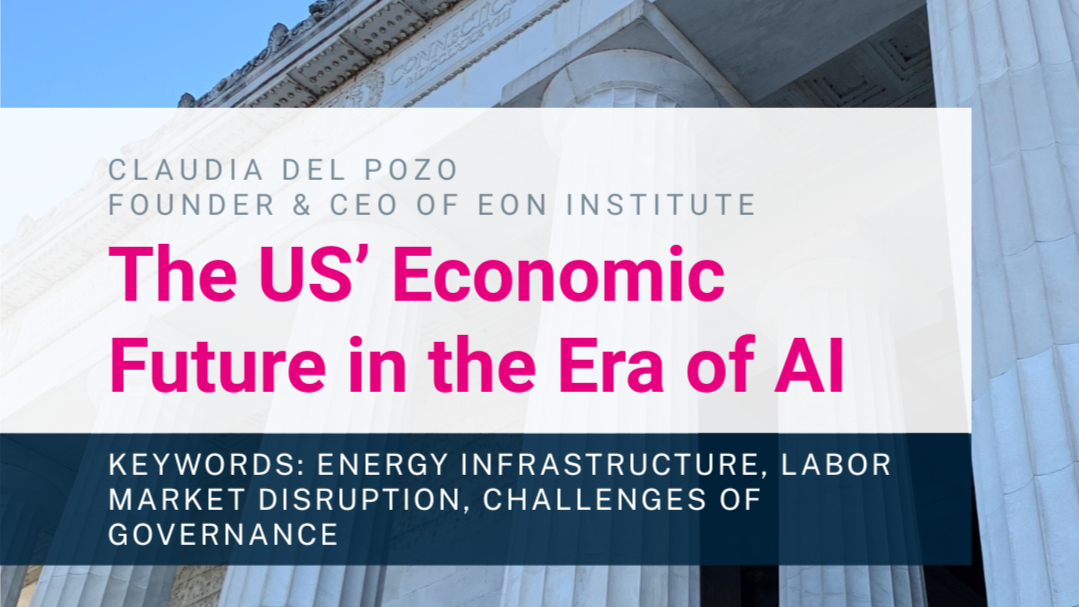Policy Paper
The US’ Economic Future in the Era of AI

Claudia participated in the Friedrich Naumann Foundation’s Economic Impact of AI Study Tour in the US in late February 2025, meeting with leading AI experts from all sectors. A leader in technology and public policy, she has been driving key initiatives for responsible AI development and adoption in Latin America since 2016, promoting economic growth and quality of life in the region. This led her to be a finalist for WAI’s Woman in AI of the Year 2025 award, receive Bloomberg’s Global Economy Catalyst award and be recognized by WIRED as one of the top women in AI in Latin America in 2024. In the past, she advised the Mexican Senate on AI, led Mexico’s first AI regulatory trial and co-founded Mexico’s first national AI coalition.
1. Introduction
Artificial Intelligence (AI) has long held the promise of considerable economic transformation. Until recently, there was a global consensus around AI development: it should be approached with a degree of caution, emphasizing principles of responsibility to ensure that progress does not come at the expense of societal well-being. However, a major shift in the United States’ (US) policy direction is now underway, with the rescinding of key executive orders around executive AI as the new Administration came into place. President Donald Trump pushed forth a new vision for AI under the “Removing Barriers to American Leadership in Artificial Intelligence” executive order (The White House, 2025), prioritizing economic competitiveness, national security, and human development.
This new approach requires the US to double down on key aspects of AI in order to unlock new efficiencies but also raises profound questions about sustainability, labor, and governance, especially as AI capabilities advance and its integration across sectors accelerates and deepens. The surge in computational demand intensifies the energy footprint of AI systems, challenging existing infrastructure and climate commitments. At the same time, automation and AI-driven decision-making are altering the nature of work, shifting labor market dynamics, and raising concerns about job displacement, inequality, and the need for workforce reskilling. And while responsible AI development and adoption is no longer a formal policy priority, it remains essential for ensuring that the economic benefits of AI are broadly shared and that its risks are equitably managed.
This brief examines the economic impact of AI in the United States through three key lenses: energy consumption, the future of work, and the imperative of responsible use, drawing on insights gathered during an international delegate’s trip to Washington, D.C. and San Francisco, CA, organized by the Friedrich Naumann Foundation’s Global World Order and Globalization Hub. By highlighting key takeaways from leading experts and policymakers engaged in each of these areas and their intersections, this brief seeks to offer a comprehensive understanding of how AI is shaping the US economy today, and what policies and strategies are needed to support inclusive, sustainable growth in the age of AI.
To read the full report please download it here:
